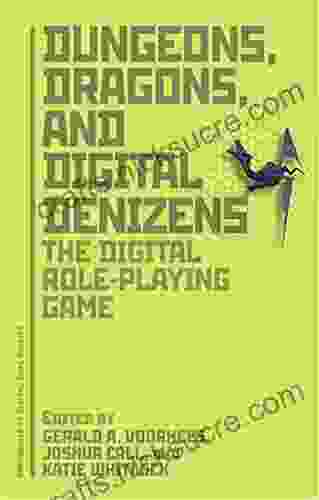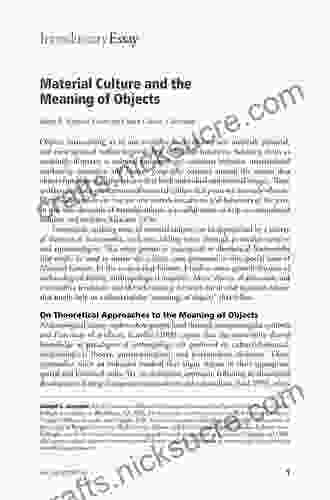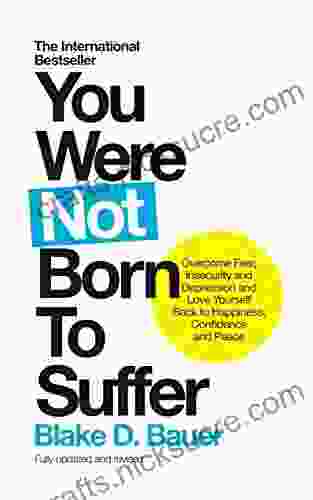Public Education, the Supreme Court, and the Battle for the American Mind

Education is the cornerstone of a democratic society, shaping the minds and futures of its citizens. In the United States, public education has long been the primary means of disseminating knowledge, promoting civic values, and fostering a well-informed and engaged population.
4.6 out of 5
| Language | : | English |
| File size | : | 2754 KB |
| Text-to-Speech | : | Enabled |
| Screen Reader | : | Supported |
| Enhanced typesetting | : | Enabled |
| Word Wise | : | Enabled |
| Print length | : | 536 pages |
However, the role of public education has been subject to ongoing debate and legal challenges, particularly in the context of the Supreme Court's decisions. This article provides a comprehensive analysis of the legal framework surrounding public education, the Supreme Court's influence on its development, and the ongoing battle for the American mind that is being waged in classrooms and courtrooms across the nation.
Historical Precedents
The legal framework governing public education in the United States traces its roots back to the early days of the Republic. The Northwest Ordinance of 1787, one of the founding documents of the United States, declared that education was "essential to good government and the happiness of mankind." This principle was later enshrined in state constitutions and Supreme Court decisions, establishing public education as a fundamental right of all American citizens.
In 1857, the Supreme Court ruled in the case of Dred Scott v. Sandford that African Americans were not citizens and therefore had no right to public education. This ruling was overturned by the Fourteenth Amendment in 1868, which granted citizenship to all persons born or naturalized in the United States and established the equal protection clause, prohibiting states from denying any person "within their jurisdiction the equal protection of the laws."
The Fourteenth Amendment has been instrumental in shaping the legal landscape of public education. In Brown v. Board of Education (1954),the Supreme Court ruled that racial segregation in public schools was unconstitutional, marking a significant victory for the civil rights movement. Subsequent cases have expanded upon the principles of equal protection and established the right of all students to a quality education regardless of race, ethnicity, socioeconomic status, or other factors.
Supreme Court Rulings
The Supreme Court has played a pivotal role in shaping the legal framework surrounding public education. Throughout history, the Court has issued a series of landmark rulings that have defined the rights and responsibilities of students, parents, and school districts.
In Tinker v. Des Moines Independent Community School District (1969),the Court ruled that students have the right to express their opinions at school, even if those opinions are unpopular or controversial. This ruling has been interpreted to protect students' First Amendment rights of free speech and expression.
In Lemon v. Kurtzman (1971),the Court established the "Lemon test" for evaluating government programs that provide aid to religious schools. Under the Lemon test, a program must have a secular purpose, must not have the primary effect of advancing or inhibiting religion, and must not create an excessive entanglement between government and religion.
In Zelman v. Simmons-Harris (2002),the Court ruled that a school voucher program that allowed parents to use public funds to pay for tuition at religious schools did not violate the Establishment Clause of the First Amendment.
These are just a few examples of the many Supreme Court rulings that have shaped the legal framework surrounding public education. The Court's decisions have had a profound impact on the rights of students, parents, and school districts, and continue to be the subject of debate and controversy.
Societal Impacts
The Supreme Court's rulings on public education have had a significant impact on American society. The decisions of the Court have helped to ensure that all students have the opportunity to receive a quality education, regardless of race, ethnicity, or socioeconomic status. They have also protected students' First Amendment rights and established the separation of church and state in public schools.
However, the Supreme Court's rulings have also been the subject of controversy. Some critics argue that the Court's decisions have led to a decline in academic standards and have allowed for the spread of religious indoctrination in public schools. Others argue that the Court's rulings have been necessary to protect the rights of students and to ensure that all Americans have access to a quality education.
Future Implications
The battle for the American mind is far from over. The Supreme Court is likely to continue to play a major role in shaping the legal landscape of public education in the years to come. As new issues arise, the Court will be called upon to decide whether they violate the Constitution and whether they are in the best interests of students and the nation as a whole.
Some of the issues that are likely to come before the Supreme Court in the future include:
- The legality of school choice programs, including vouchers and charter schools
- The role of religion in public schools
- The rights of students with disabilities
- The regulation of online education
The Supreme Court's decisions on these and other issues will have a profound impact on the future of public education in the United States. The Court's rulings will help to determine the quality of education that students receive, the rights of students and parents, and the role of government in education.
Public education is a fundamental right and a cornerstone of American society. The Supreme Court has played a major role in shaping the legal framework surrounding public education, and its decisions have had a significant impact on the rights of students, parents, and school districts. The battle for the American mind is far from over, and the Supreme Court is likely to continue to play a major role in shaping the legal landscape of public education in the years to come.
4.6 out of 5
| Language | : | English |
| File size | : | 2754 KB |
| Text-to-Speech | : | Enabled |
| Screen Reader | : | Supported |
| Enhanced typesetting | : | Enabled |
| Word Wise | : | Enabled |
| Print length | : | 536 pages |
Do you want to contribute by writing guest posts on this blog?
Please contact us and send us a resume of previous articles that you have written.
 Fiction
Fiction Non Fiction
Non Fiction Romance
Romance Mystery
Mystery Thriller
Thriller SciFi
SciFi Fantasy
Fantasy Horror
Horror Biography
Biography Selfhelp
Selfhelp Business
Business History
History Classics
Classics Poetry
Poetry Childrens
Childrens Young Adult
Young Adult Educational
Educational Cooking
Cooking Travel
Travel Lifestyle
Lifestyle Spirituality
Spirituality Health
Health Fitness
Fitness Technology
Technology Science
Science Arts
Arts Crafts
Crafts DIY
DIY Gardening
Gardening Petcare
Petcare Eze Ugbor
Eze Ugbor Ben Cohen
Ben Cohen Marc Dando
Marc Dando Tom Mccarthy
Tom Mccarthy Abby Sunderland
Abby Sunderland Heather Lynn
Heather Lynn Eduardo Duran
Eduardo Duran Kathy Koch Phd
Kathy Koch Phd Abbi Glines
Abbi Glines Ken Retallic
Ken Retallic Christopher Pike
Christopher Pike Martha C Nussbaum
Martha C Nussbaum Mark Januszewski
Mark Januszewski Pamela Druckerman
Pamela Druckerman Caroline Kaufman
Caroline Kaufman Aaron J Perry
Aaron J Perry Lenyfer Garrido
Lenyfer Garrido Gladys Chepkirui Ngetich
Gladys Chepkirui Ngetich Joe Simpson
Joe Simpson Brad Brewer
Brad Brewer Stephen Abbott
Stephen Abbott Rosie Pope
Rosie Pope Collins Kids
Collins Kids Jay Dawes
Jay Dawes Leigh Bardugo
Leigh Bardugo Winston Chang
Winston Chang Tali Edut
Tali Edut Lisa Pineda
Lisa Pineda Virginia Smith Harvey
Virginia Smith Harvey Allan Sand
Allan Sand Rose Ann Hudson
Rose Ann Hudson Annie Nicholas
Annie Nicholas Darrin Bergman
Darrin Bergman Teresa Finney
Teresa Finney Emma Crewe
Emma Crewe Maureen Duffin Ward
Maureen Duffin Ward Aaron Reed Msn Crna
Aaron Reed Msn Crna Amber Domoradzki
Amber Domoradzki Jimmy Houston
Jimmy Houston Tomi Adeyemi
Tomi Adeyemi Cosmas Inyang
Cosmas Inyang Chella Quint
Chella Quint J Robert King
J Robert King Brandon Neice
Brandon Neice Adam Braus
Adam Braus Aaron Oster
Aaron Oster Kayla Cottingham
Kayla Cottingham Abinash Das
Abinash Das Robert Fritz
Robert Fritz R L Stine
R L Stine Steven Alan Childress
Steven Alan Childress Linda Sarris
Linda Sarris Abigail Hair
Abigail Hair Dmv Test Bank
Dmv Test Bank Vivienne Sanders
Vivienne Sanders Christophe Jaffrelot
Christophe Jaffrelot Israel Finkelstein
Israel Finkelstein Jenny Han
Jenny Han Abraham Silberschatz
Abraham Silberschatz Megan Lane
Megan Lane Barbara Natterson Horowitz
Barbara Natterson Horowitz Irakli Makharadze
Irakli Makharadze Chashiree M
Chashiree M Amelia Whitmore
Amelia Whitmore Thubten Yeshe
Thubten Yeshe Charles Thomas Jr
Charles Thomas Jr Randi Hutter Epstein
Randi Hutter Epstein Arthur Atchabahian
Arthur Atchabahian Al Baird
Al Baird Chiara Giuliani
Chiara Giuliani Mary Wong
Mary Wong Charles Fernyhough
Charles Fernyhough Melodie M Davis
Melodie M Davis Christopher Black
Christopher Black Phil Gaimon
Phil Gaimon Programming Languages Academy
Programming Languages Academy Aaron Mahnke
Aaron Mahnke Meg Keys
Meg Keys Andrea M Nelson Royes
Andrea M Nelson Royes Kit Bauman
Kit Bauman Lindsey Ellison
Lindsey Ellison Gayle Forman
Gayle Forman Chuck Callaway
Chuck Callaway Lisa Heffernan
Lisa Heffernan Christopher Monahan
Christopher Monahan Abby Hafer
Abby Hafer Michael Johnson
Michael Johnson Gail Buckland
Gail Buckland Harley Rustad
Harley Rustad Ken Springer
Ken Springer Ian Davis
Ian Davis Ryan Smithson
Ryan Smithson Steve Roper
Steve Roper Shannon Hale
Shannon Hale Jennifer Shannon
Jennifer Shannon Tom Jackson
Tom Jackson Dan Shideler
Dan Shideler David Winner
David Winner Rory Miller
Rory Miller Michael L Bloomquist
Michael L Bloomquist Ralph Villiger
Ralph Villiger David Rensin
David Rensin Kristin Berry
Kristin Berry Ian Mcleod
Ian Mcleod Abbas Kazerooni
Abbas Kazerooni John D Gordon
John D Gordon Kate Rope
Kate Rope Richard Lighthouse
Richard Lighthouse Aliza Green
Aliza Green Achille Rubini
Achille Rubini Andrew Campanella
Andrew Campanella Abhishek V R
Abhishek V R Andy Couturier
Andy Couturier Barry Dainton
Barry Dainton Gary Sakuma
Gary Sakuma Cornel West
Cornel West Vince Kotchian
Vince Kotchian Shuai Huang
Shuai Huang Aiden Thomas
Aiden Thomas Louise Thaden
Louise Thaden Martha Gellhorn
Martha Gellhorn Carl Jones
Carl Jones Sean Lewis
Sean Lewis Natasha Preston
Natasha Preston Susan Zeppieri
Susan Zeppieri Clara Shaper
Clara Shaper Adam Becker
Adam Becker Zoe Hamlet Silva
Zoe Hamlet Silva Ariana Eagleton
Ariana Eagleton Jennifer Ackerman
Jennifer Ackerman Alicia C Simpson
Alicia C Simpson Laura Peyton Roberts
Laura Peyton Roberts Charles H Kraft
Charles H Kraft Lee Sandlin
Lee Sandlin Laurie Chaikind Mcnulty Lcsw C
Laurie Chaikind Mcnulty Lcsw C Adam J Rosh
Adam J Rosh Jennifer Greene
Jennifer Greene Paul Chiasson
Paul Chiasson Dr Robert Pasahow
Dr Robert Pasahow Ed Engle
Ed Engle Mary Roach
Mary Roach Carmen Moreno
Carmen Moreno Barry Robinson
Barry Robinson Adam Benshea
Adam Benshea E P Marcellin
E P Marcellin Robert Reid
Robert Reid Miriam Forman Brunell
Miriam Forman Brunell Kirk Bailey
Kirk Bailey Randy Walker
Randy Walker Christopher S Stewart
Christopher S Stewart Hans C Ohanian
Hans C Ohanian Erik Scott De Bie
Erik Scott De Bie Adam H Balen
Adam H Balen Abigail Pogrebin
Abigail Pogrebin Ron Hotchkiss
Ron Hotchkiss Sam J Miller
Sam J Miller John Taylor
John Taylor Kevin A Morrison
Kevin A Morrison Michel Roy
Michel Roy Alan Robertson
Alan Robertson Domenica Marchetti
Domenica Marchetti Claire Santry
Claire Santry Horace Kephart
Horace Kephart Achim K Krull
Achim K Krull Richard Martin
Richard Martin Steve Mcmenamin
Steve Mcmenamin Michael Gruenbaum
Michael Gruenbaum Tony Soper
Tony Soper Deborah Beck Busis
Deborah Beck Busis Susan Walton
Susan Walton T L Christianson
T L Christianson Zoyla Arana
Zoyla Arana Fumio Sasaki
Fumio Sasaki Blake D Bauer
Blake D Bauer Scott Shaw
Scott Shaw Jon Butterworth
Jon Butterworth Adam Galinsky
Adam Galinsky Ada Calhoun
Ada Calhoun Justin Driver
Justin Driver Miranda Kenneally
Miranda Kenneally Rick Sekuloski
Rick Sekuloski O Thomas Gift
O Thomas Gift Chaz Scoggins
Chaz Scoggins Peter David
Peter David Marvin Valerie Georgia
Marvin Valerie Georgia Brian L Gorman
Brian L Gorman Jay Ruud
Jay Ruud Sheri Van Dijk
Sheri Van Dijk Pearson Education
Pearson Education Marie Cirano
Marie Cirano Claire Ahn
Claire Ahn Christian Beamish
Christian Beamish George J Hademenos
George J Hademenos Lavinia Collins
Lavinia Collins Gloria Atanmo
Gloria Atanmo Brigitte Jordan
Brigitte Jordan Catherine Ryan Hyde
Catherine Ryan Hyde M J Parisian
M J Parisian Stephen Gray
Stephen Gray Peter Harrison
Peter Harrison Al Desetta
Al Desetta Lisa M Schab
Lisa M Schab Daphne Poltz
Daphne Poltz Abridged Ed Edition Kindle Edition
Abridged Ed Edition Kindle Edition Adam Freeman
Adam Freeman Michael Baigent
Michael Baigent Liza Angela
Liza Angela Amber Fox
Amber Fox Deborah Madison
Deborah Madison Daniel Carter Beard
Daniel Carter Beard Sally Clarkson
Sally Clarkson Al Yellon
Al Yellon Abdul Foster
Abdul Foster Bobby Reyes
Bobby Reyes Jim Willis
Jim Willis Linford Stutzman
Linford Stutzman Tamora Pierce
Tamora Pierce Fred Fields
Fred Fields Baba Ifa Karade
Baba Ifa Karade Aaron Blight
Aaron Blight Tom Migdalski
Tom Migdalski Aaron Lee Johnson
Aaron Lee Johnson Laura Ray
Laura Ray Brian Greene
Brian Greene Aaron Mccargo
Aaron Mccargo Carl Vernon
Carl Vernon Genius Reads
Genius Reads Walter Browder
Walter Browder Agustin Fuentes
Agustin Fuentes Gregor Clark
Gregor Clark Charles C Patrick
Charles C Patrick Jack Moore
Jack Moore Chris Worfolk
Chris Worfolk Drew Harris
Drew Harris Lin Wellford
Lin Wellford Louise Pickford
Louise Pickford Abby Mcallister
Abby Mcallister Stephanie Zeiss
Stephanie Zeiss Ann Frederick
Ann Frederick Pat Chargot
Pat Chargot T L Lowery
T L Lowery An American Citizen
An American Citizen Debbie Elicksen
Debbie Elicksen Elisabetta Viggiani
Elisabetta Viggiani Iain Highfield
Iain Highfield Rachael Ray
Rachael Ray Nick Holt
Nick Holt G Bailey
G Bailey Abigail Hing Wen
Abigail Hing Wen Katrina Kahler
Katrina Kahler Abdelkader Nouiri
Abdelkader Nouiri Ron Jones
Ron Jones Emily K Neuburger
Emily K Neuburger Nancy Mohrbacher
Nancy Mohrbacher Jason Korol
Jason Korol Carley Roney
Carley Roney Dan Morris
Dan Morris Lillian Cumic
Lillian Cumic David Warriner
David Warriner Adam Frank
Adam Frank Stephen Brennan
Stephen Brennan Phil Boyle
Phil Boyle Erika Fatland
Erika Fatland Gil Capps
Gil Capps Tomos Forrest
Tomos Forrest Abby Haight
Abby Haight Ilsa J Bick
Ilsa J Bick Maya Lang
Maya Lang Sarah Moore
Sarah Moore Kemi Iwalesin
Kemi Iwalesin John Caig
John Caig Stacy Eaton
Stacy Eaton Christopher Knight
Christopher Knight Sarah Luddington
Sarah Luddington Lucy Letcher
Lucy Letcher Xiuhtezcatl Martinez
Xiuhtezcatl Martinez Laura Sebastian
Laura Sebastian Rolf Mowatt Larssen
Rolf Mowatt Larssen Gavin D J Harper
Gavin D J Harper Jeremy Roenick
Jeremy Roenick Beth Newell
Beth Newell Bruce Van Brunt
Bruce Van Brunt Curt Lader
Curt Lader David G Brown
David G Brown Richelle Mead
Richelle Mead Sasha Abramsky
Sasha Abramsky Irene Lewis Mccormick
Irene Lewis Mccormick John Hancock
John Hancock Kim Gosselin
Kim Gosselin Ann Mariah Cook
Ann Mariah Cook Farah Shabazz Ii
Farah Shabazz Ii Garrett Mcnamara
Garrett Mcnamara Adam Koch
Adam Koch Michelle Obama
Michelle Obama William Hamilton Gibson
William Hamilton Gibson Al Barkow
Al Barkow Seth Kugel
Seth Kugel Robert Allans
Robert Allans Abigail Tucker
Abigail Tucker Og Mandino
Og Mandino Matt Owens
Matt Owens Chris Jericho
Chris Jericho Maxine Levaren
Maxine Levaren Michael N Mitchell
Michael N Mitchell Jeremy Paxman
Jeremy Paxman Eugene H Merrill
Eugene H Merrill Lynn Alley
Lynn Alley Alifya And Umesh Mohite
Alifya And Umesh Mohite Mikki Daughtry
Mikki Daughtry Arthur Turrell
Arthur Turrell Sorin Dumitrascu
Sorin Dumitrascu Tim Larkin
Tim Larkin Jane Gross
Jane Gross Tim Jarvis
Tim Jarvis Aaron Graves
Aaron Graves Craig Timberg
Craig Timberg Scott Parsons
Scott Parsons Alicia Silverstone
Alicia Silverstone Alvin Alexander
Alvin Alexander Todd Graves
Todd Graves Reinette Biggs
Reinette Biggs Aaron James
Aaron James Jeremy Shinewald
Jeremy Shinewald Judi Kesselman Turkel
Judi Kesselman Turkel Kaylynn Flanders
Kaylynn Flanders Colin Hunter
Colin Hunter Lisa M Given
Lisa M Given Lucio Russo
Lucio Russo Marlene Wagman Geller
Marlene Wagman Geller Achusim Michael
Achusim Michael Helen Scales
Helen Scales Adam Kimelman
Adam Kimelman Michelle Hodkin
Michelle Hodkin Phong Thong Dang
Phong Thong Dang Lois G Schwoerer
Lois G Schwoerer Bill Mckibben
Bill Mckibben Adam D Scott
Adam D Scott Paul Schneider
Paul Schneider Rex Ogle
Rex Ogle Renda Dionne Madrigal
Renda Dionne Madrigal Sam Jarman
Sam Jarman Matt Warshaw
Matt Warshaw Larry Carpenter
Larry Carpenter Lisa Robertson
Lisa Robertson Amby Burfoot
Amby Burfoot Andy Dumas
Andy Dumas Kel Carpenter
Kel Carpenter Felice Fox
Felice Fox Helen C Rountree
Helen C Rountree P S Page
P S Page Abu Mussab Wajdi Akkari
Abu Mussab Wajdi Akkari Abbey Curran
Abbey Curran Garo Yepremian
Garo Yepremian Randall Hyde
Randall Hyde Scott Meyers
Scott Meyers Jessie Hartland
Jessie Hartland Carolyn Jessop
Carolyn Jessop Debbie Ford
Debbie Ford Peter Sagal
Peter Sagal Jennifer L Hunt
Jennifer L Hunt Stephen R Lawhead
Stephen R Lawhead Paul Mclerran
Paul Mclerran Jack Cavanaugh
Jack Cavanaugh Steve Rosenberg
Steve Rosenberg Goodman Publishing
Goodman Publishing Terry Palechuk
Terry Palechuk Gisle Solhaug
Gisle Solhaug Jeff Bauman
Jeff Bauman Rob Gray
Rob Gray Alexander Nehamas
Alexander Nehamas Bill Loguidice
Bill Loguidice Glen Finland
Glen Finland Sean Mcmanus
Sean Mcmanus Neil Oliver
Neil Oliver Charlie Barker
Charlie Barker Taylan Hoca
Taylan Hoca Moon Ho Jung
Moon Ho Jung Hillary Allen
Hillary Allen Adam Lashinsky
Adam Lashinsky Abigail Alling
Abigail Alling Scott Butler
Scott Butler Abigail Owen
Abigail Owen Adam Boduch
Adam Boduch Joy Neighbors
Joy Neighbors Shari Eskenas
Shari Eskenas Christina Hoff Sommers
Christina Hoff Sommers Dan Werb
Dan Werb Jessica Hepburn
Jessica Hepburn Sarah K L Wilson
Sarah K L Wilson Jacob Neumann
Jacob Neumann Ronald Kaine
Ronald Kaine Dick Edie
Dick Edie Jasna Tuta
Jasna Tuta Stefan Ball
Stefan Ball David Simon
David Simon Aaron Hahn
Aaron Hahn Betsy Miller
Betsy Miller Richard Langer
Richard Langer Emily J Taylor
Emily J Taylor Gerald A Voorhees
Gerald A Voorhees Paula Deen
Paula Deen Abigail Marshall
Abigail Marshall Adam J Cox
Adam J Cox Lynn E Ponton
Lynn E Ponton Lynn Rush
Lynn Rush James Surowiecki
James Surowiecki Sarah Maslin Nir
Sarah Maslin Nir Jennifer Finney Boylan
Jennifer Finney Boylan Michael Crawley
Michael Crawley Stuart Firestein
Stuart Firestein Aaron Reed
Aaron Reed Charles L Byrne
Charles L Byrne Laura Gao
Laura Gao Sheldon Axler
Sheldon Axler Scott Carney
Scott Carney Jim Morekis
Jim Morekis Adam Enaz
Adam Enaz Winifred Conkling
Winifred Conkling Douglas W Hubbard
Douglas W Hubbard Rachel Caine
Rachel Caine Stephen A Mitchell
Stephen A Mitchell Dawson Church
Dawson Church Katie Lear
Katie Lear Sharon Boyd
Sharon Boyd Brian Hoggard
Brian Hoggard Laurence Steinberg
Laurence Steinberg Roman Dial
Roman Dial Tom Rosenbauer
Tom Rosenbauer Elena Aguilar
Elena Aguilar Thomas Wilson
Thomas Wilson Anthony Wilkenson
Anthony Wilkenson Monica Sorrenson
Monica Sorrenson Norton Juster
Norton Juster Kenn Kaufman
Kenn Kaufman Timothy Phelps
Timothy Phelps Sherri Granato
Sherri Granato Andrew Skurka
Andrew Skurka William Deresiewicz
William Deresiewicz Richard Sattora
Richard Sattora Benjamin Roberts
Benjamin Roberts Barbara Decker
Barbara Decker Sissy Goff
Sissy Goff David Lipsky
David Lipsky Michael Egan
Michael Egan Bathroom Readers Institute
Bathroom Readers Institute Steve Griffith
Steve Griffith Barbara Fox
Barbara Fox Devika Primic
Devika Primic Vivian Gussin Paley
Vivian Gussin Paley Adam Lazarus
Adam Lazarus Stephanie Puglisi
Stephanie Puglisi Jeremy Miles
Jeremy Miles Vikas Kakwani
Vikas Kakwani Cassandra Eason
Cassandra Eason Mark Strom
Mark Strom Conrad Bauer
Conrad Bauer Suzanne Corkin
Suzanne Corkin Achref Hassini
Achref Hassini John Kean
John Kean David Feddes
David Feddes Sheila Lamb
Sheila Lamb Ned Johnson
Ned Johnson Barbara A Lewis
Barbara A Lewis George John Romanes
George John Romanes Emily Suzanne Clark
Emily Suzanne Clark Adam Chandler
Adam Chandler Man Kam Lo
Man Kam Lo Uri Bram
Uri Bram Casey Robson
Casey Robson Wayne Westcott
Wayne Westcott Corinne Andrews
Corinne Andrews Lisa Latimer
Lisa Latimer James Heberd
James Heberd Asato Asato
Asato Asato Axie Oh
Axie Oh Abigail Melton
Abigail Melton Rania Abouzeid
Rania Abouzeid Gerry Donohue
Gerry Donohue Edward J Larson
Edward J Larson Sophie Mccartney
Sophie Mccartney Papus
Papus
Light bulbAdvertise smarter! Our strategic ad space ensures maximum exposure. Reserve your spot today!

 Pete BlairVince's Comprehensive Guide to Mastering GRE Vocabulary: Unlocking Linguistic...
Pete BlairVince's Comprehensive Guide to Mastering GRE Vocabulary: Unlocking Linguistic...
 Maurice Parker360 Driving Test Questions To Help You Ace Your DMV Exam Practice Driving...
Maurice Parker360 Driving Test Questions To Help You Ace Your DMV Exam Practice Driving... Hugh BellFollow ·13.2k
Hugh BellFollow ·13.2k Dion ReedFollow ·16k
Dion ReedFollow ·16k Gregory WoodsFollow ·5.3k
Gregory WoodsFollow ·5.3k Kelly BlairFollow ·8.8k
Kelly BlairFollow ·8.8k Oliver FosterFollow ·11.1k
Oliver FosterFollow ·11.1k Neal WardFollow ·7.6k
Neal WardFollow ·7.6k Ralph Waldo EmersonFollow ·5.6k
Ralph Waldo EmersonFollow ·5.6k Norman ButlerFollow ·3.6k
Norman ButlerFollow ·3.6k

 Doug Price
Doug PriceTracing the Evolution of Modern Psychoanalytic Thought:...
Psychoanalysis, once considered a radical...

 Devin Ross
Devin RossThe Digital Role Playing Game Approaches To Digital Game...
These are just a few of the many...

 F. Scott Fitzgerald
F. Scott FitzgeraldHistory from Things: Essays on Material Culture
History from Things:...

 Percy Bysshe Shelley
Percy Bysshe ShelleyThe Priest Lake Girl and the Cabin of Love: A True Story...
The Murder On...

 Isaiah Powell
Isaiah PowellThe Golf Mystic: Dick Edie's Unconventional Approach to...
In the annals of golf history, the name Dick...
4.6 out of 5
| Language | : | English |
| File size | : | 2754 KB |
| Text-to-Speech | : | Enabled |
| Screen Reader | : | Supported |
| Enhanced typesetting | : | Enabled |
| Word Wise | : | Enabled |
| Print length | : | 536 pages |










